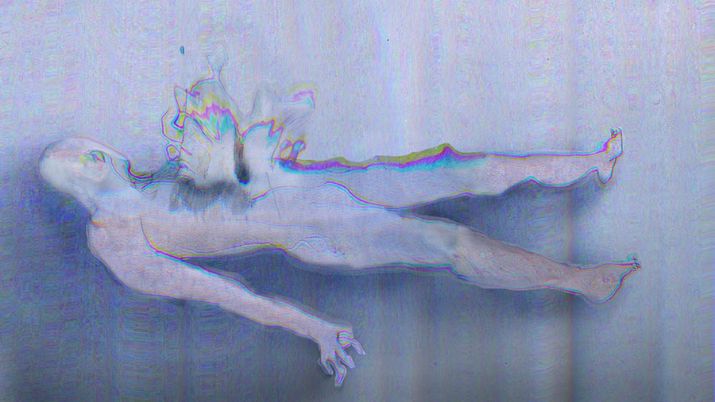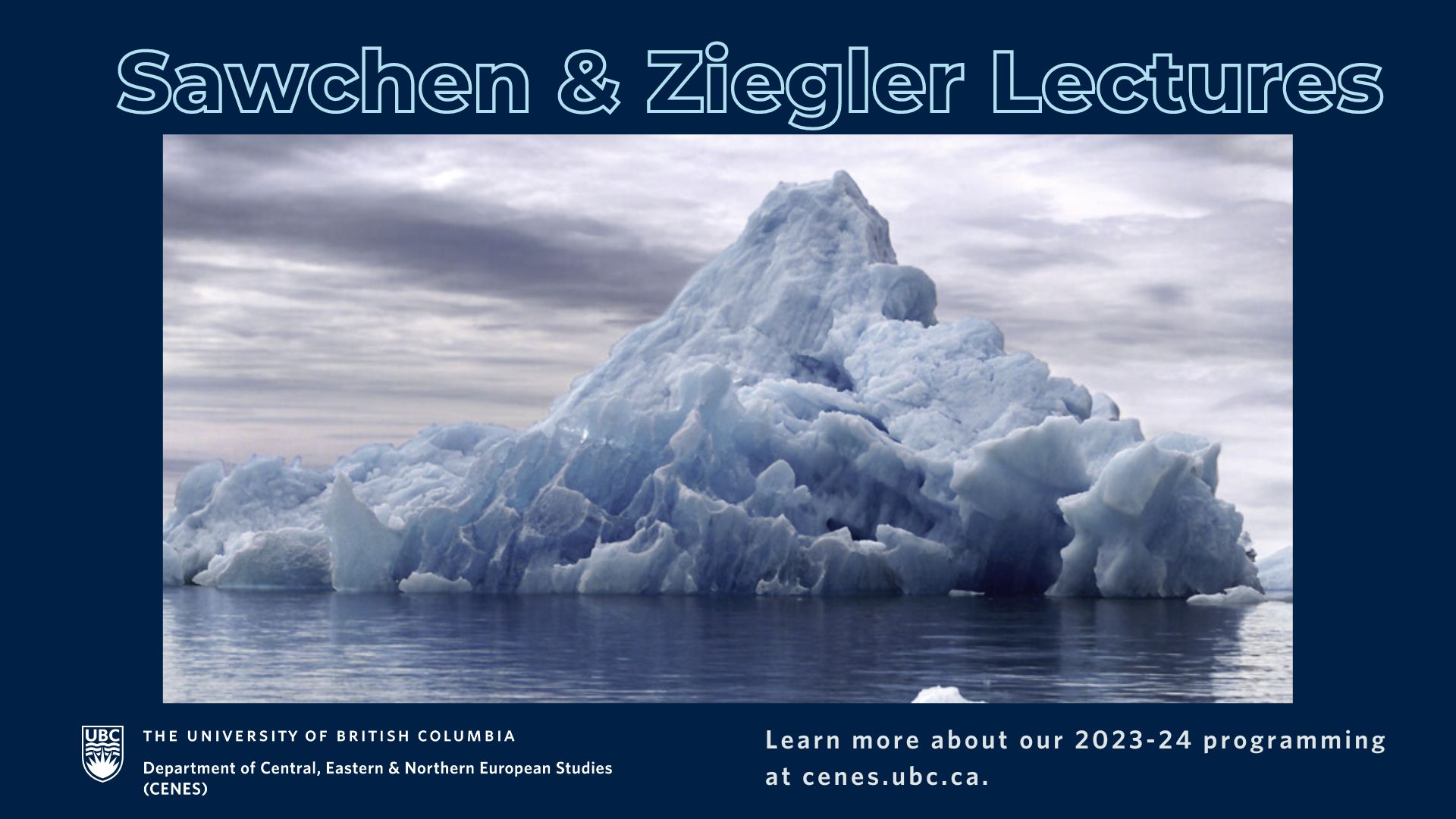

The CENES 2023-2024 academic year has officially come to an end. Revisit this year’s Sawchen and Ziegler Lectures one last time!
In 2023-2024, the Department of Central, Eastern and Northern European Studies had the pleasure of hosting 10 guest speakers for our annual Sawchen and Ziegler Lecture Series. The Sawchen and Ziegler lectures shed light on current and historical topics related to Slavic and German Studies respectfully.
Translation, decolonization, queer studies and literature were just some of the subjects these talks touched upon. Each lecture is given by a different scholar, who CENES faculty invites from around the world. Lectures can be online or in-person, and are free and accessible to students, academics and the public. If you’re curious about who CENES invited this past year, below are links are provided to the online recordings.
Term 1 Lectures
Sawchen Lecture presented by Brian Baer on “De-colonizing Slavic Studies: Revisionist History and Critical Reading Practices”


Bio: Brian James Baer is Professor of Russian and Translation Studies at Kent State University. He is founding editor of the journal Translation and Interpreting Studies and co-editor of the book series Literatures, Cultures, Translation (Bloomsbury), with Michelle Woods, and Translation Studies in Translation (Routledge), with Yifan Zhu. His recent publications include the monograph Queer Theory and Translation Studies: Language, Politics, Desire and the collected volume Teaching Literature in Translation: Pedagogical Contexts and Reading Practices, with Michelle Woods.
Ziegler Lecture presented by Martin Wagner on “Rethinking the Politics of Theatre: Lessons from the History of Vienna’s Burgtheater in the Nineteenth Century”.
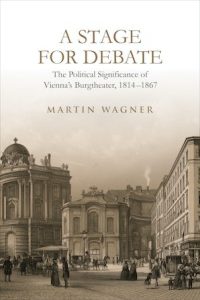

Abstract: Since the second half of the twentieth century, the politics of theatre have often been understood to revolve around the extent to which individual productions challenge prevailing structures or normative frameworks. Yet theatres typically offer many different productions and whatever a theatre achieves must have to do not only with its individual productions, but also with the effect of the multitude of works to which it exposes its audience. Taking this plurality of productions seriously, I propose to look at the internal differentiation of the repertoire (or repertoire polyphony) as an alternative indicator of political relevance. In my lecture, I further develop the idea of repertoire polyphony through a historical case study of the most prominent German-language stage of the nineteenth century, Vienna’s Burgtheater.
Bio: Martin Wagner is a Professor of German in the School of Languages, Linguistics, Literatures and Cultures at the University of Calgary. His research focuses on the literary and intellectual history of the eighteenth and nineteenth centuries. Publications include A Stage for Debate: The Political Significance of Vienna’s Burgtheater, 1814-1867 (the University of Toronto Press in June 2023); The Narratology of Observation: Studies in a Technique of European Literary Realism (De Gruyter, 2018); and Selected Works by J.M.R. Lenz (translated and edited together with Ellwood Wiggins; Camden House, 2019).
Ziegler Lecture presented by Erin McGlothlin on “Between Exile and Holocaust: Fred Wander’s Hôtel Baalbek”


Please note there is no recording for Erin McGlothlin’s talk.
Abstract: Focusing on the biography and literary work of the Austrian-Jewish writer and Holocaust survivor Fred Wander, this presentation will attempt to interrogate a conceptual divide within the scholarship on exile, refuge, and persecution during the Nazi period that rigidly separates the experience of exile from the Third Reich (generally considered as having happened in the “West”) from that of persecution within the Holocaust (seen as having taken place in the “East”). As I will argue, our mental map of this period situates a given individual fate in either in Western Europe (or North America) or in Eastern Europe; an actor from this period is thus considered to have been either an exile or a witness to the Holocaust, but not both. Particularly in literary scholarship, these two constellations of experience are often considered to be mutually exclusive. Indeed, there exists two highly developed disciplinary approaches—Exile Studies and Holocaust Studies—each of which pursues its own distinct research questions mostly in isolation from the other.
Bio: McGlothlin is Professor of German and Jewish Studies and Vice Dean for Undergraduate Affairs at Washington University in St. Louis. She’s a leading scholar in Holocaust literature and film as well as German-Jewish studies. In addition to a comparative focus on Holocaust representation, McGlothlin’s research interests include postwar and contemporary German literature, Jewish Studies, narrative theory, autobiography, and the graphic novel. She is the author of Second-Generation Holocaust Literature: Legacies of Survival and Perpetration (2006) and The Mind of the Holocaust Perpetrator in Fiction and Nonfiction (2021).
Sawchen Lecture presented by Kamil Karczewski on “Lesbian Utopias and Polish Nationalism, 1840–1940.”


Zofia Sadowska alongside two other women in 1927; they were among the first female car racers in Poland (source: Auto magazine, September 1927, vol. 6, no. 9, p. 1).
Abstract: In the 1840s, Narcyza Żmichowska, an unmarried female teacher from Warsaw, gathered a group of young, devoted women around her, whom she called ‘the Enthusiasts’. Żmichowska encouraged them to strive for economic independence and education. She also assured them that they did not need to rely on men. The Enthusiasts were somewhat peculiar, if not queer—they smoked cigars, engaged in nationalist activism, and believed in a unique form of intimacy between women that Żmichowska dubbed ‘in-sistering’. Several decades later, Zofia Sadowska, a female physician from Warsaw, took things a step further. Not only did she wear men’s clothing, become a rally driver, and invest in oil drilling, but she also was not afraid to publicly declare that there was nothing humiliating about being a lesbian. This raised some eyebrows among Warsaw socialites, but it did not stop Sadowska from creating a home with another woman. Meanwhile, Maria Rodziewiczówna, a nationalist writer, was less vocal about her lesbian love, but she, too, pursued a lesbian dream. She envisioned it as a small cottage in the middle of a forest, where she moved in with her partner. There, they spent their summer months in seclusion, surrounded by Eastern European nature, wildlife, and an abundance of wild berries. This paper explores the ways in which these three non-normative women carved out pockets of respectability for themselves in a male-dominated world without compromising on love, building various and creative homosocial spaces that I, with just a touch of exaggeration, call utopias.
Bio: Dr. Kamil Karczewski is a Past & Present Fellow at the Institute of Historical Research, University of London. His research explores the intersections of queerness, nationalism, and class in the history of interwar Central and Eastern Europe. Karczewski earned his PhD from the European University Institute in Florence. Previously, he was a fellow at the German Historical Institute in Washington, the Herder Institute for Historical Research on East Central Europe in Marburg, and the Leibniz Institute of European History in Mainz.
Sawchen Lecture presented by Lubomyr Luciuk on “Lest They Forget: Canada’s First National Internment Operations and the Redress Movement”


Bio: Lubomyr Luciuk is a professor of political geography at the Royal Military College of Canada, a Fellow of the Chair of Ukrainian Studies at the University of Toronto, and the author of numerous publications dealing with the political history of the Canadian Ukrainian community and contemporary Ukraine. A founding member of the Ukrainian Canadian Civil Liberties Association, Dr. Luciuk was distinguished in 2019 with Ukraine’s Cross of Ivan Mazepa. He has been a GIC appointee to the Immigration and Refugee Board of Canada and the Parole Board of Canada, and was, for many years, active on the Endowment Council of the Canadian First World War Internment Recognition Fund, which his efforts helped establish. He is currently writing his memoirs, and completing a monograph on the redress campaign. His most recent book (with Dr. V. Viatrovych) is Enemy Archives: Soviet Counter Insurgency Operations and the Ukrainian Nationalist Movement (McGill-Queen’s University Press, 2023).
Term 2 Lectures
Sawchen Lecture presented by Sebastian Schulman on “Am I My Brother’s Reader? The State of Yiddish Literary Translation”


Abstract: “In this presentation, I examine recent developments in the translation of Yiddish literature into English in the United States and Canada. Providing an overview of the field, I show how translation from Yiddish has shifted from a practice largely rooted in nostalgia, Holocaust memory, and Cold War politics, to a broader phenomenon aimed at both a linguistically assimilated in-group of readers as well as a more global audience. Paying special attention to fundamental translation studies issues regarding audience and readership in the specific context of contemporary Yiddish culture, the talk will also include reading from select texts in both languages.”
Bio: Sebastian Schulman (he/him) is the director of special projects & partnerships at the Yiddish Book Center. Previously, he served as the executive director of KlezKanada, a leading organization in Yiddish arts and culture. His translations and original work have appeared in more than a dozen literary journals, including Two Lines, Words Without Borders, and ANMLY. Sebastian’s translation of Spomenka Stimec’s Esperanto novel Croatian War Nocturnal was published by Phoneme Media/Deep Vellum in 2017. He lives in Montréal, Québec (Tiohtià:ke).
Ziegler Lecture presented by Michelle Moyd on “Askari, Gurnah’s Afterlives, and History: Some Reflections”


“View of the thematic areas ‘Colonial Contact Zones and Societies’ and ‘Dominion and Violence’ © Deutsches Historisches Museum/David von Becker”
Abstract: “The history of African soldiers (askari) who fought in the German colonial army (Schutztruppe) in German East Africa (1890-1918) garnered new attention in 2020 when Abdulrazak Gurnah’s Afterlives was published. Gurnah’s Nobel Prize for Literature win in 2021 brought his body of work to much wider audiences. Where do fiction and history meet in his acclaimed novel? Reflecting on over two decades of historical research on the askari and their roles in the First World War in eastern Africa, I discuss how insights from Gurnah’s recent fiction have shaped my thinking about the askari and the German colonial past. I also situate Afterlives within a growing literary landscape of novels, short stories, and film that feature African colonial soldiers as central subjects.”
Bio: Michelle Moyd is Associate Professor of History at Michigan State University. She is the author of Violent Intermediaries: African 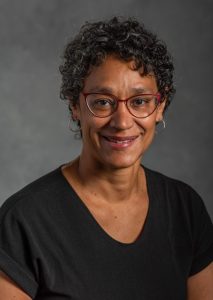

Ziegler Lecture presented by Claudia Breger on “Literary Dreaming (Under the Weight of Political Nightmares)”
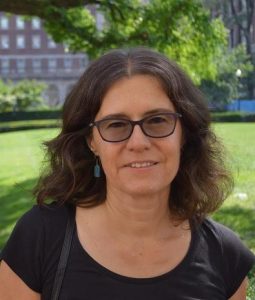

In our ongoing moment of shrinking humanities programs, the renewed interest in dreaming also contributes to the discussion of what literature, film, and the other arts offer towards the goal of reimagining and remaking contemporary worlds. My talk will address these questions in initiating a dialogue between several recent novels from Germany’s literatures of migration and the indicated range of theoretical traditions (mindful of not short circuiting different contexts of historical trauma and political violence). In addition to Yaghoobifarah, I plan to draw on Dinçer Güçyeter’s Unser Deutschlandmärchen (2022) and Emine Sevgi Özdamar’s Ein von Schatten begrenzter Raum (2021).
Bio: Claudia Breger is the Villard Professor of German and Comparative Literature. Her research focuses on twentieth- and twenty-first century culture, with emphases on film and theater; literary, media, and cultural theory; and the intersections of gender, sexuality and race. She is particularly interested in combining theory with historical perspectives, and cultural studies approaches with aesthetic inquiries and close reading practices. Prof. Breger’s most recent book, Making Worlds: Affect and Collectivity in Contemporary European Cinema, has been published by Columbia University Press (2020). The study reconnects her work on affect to questions of narrative and form by way of asyncretic concept of cinematic worldmaking.
Ziegler Lecture presented by Zavier Nunn on “Trans liminality and the Holocaust”
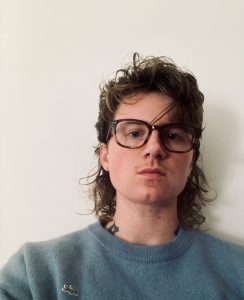

Abstract: Holocaust studies have recently seen a much needed ‘queer’ turn, but trans’ specific position within the literature remains nascent and fraught. Indeed, there is a heated and pressing discourse surrounding the question of ‘whether trans people were victims of Nazism’ which has stakes within contemporary politics. This lecture provides insights into the nature of this contemporary discourse and offers a historical argument for trans women’s liminal position with the Nazi social order, which cannot be reduced to an analysis of discrete identity categories. A focus on trans subjects makes visible larger structures and trends that are not reducible to those trans subjects. In doing so, I narrate the normative logics of sex, gender, and race as they are addressed to, and unevenly administered upon, the social totality under Nazism.
Bio: Zavier Nunn is the postdoctoral associate on the theme ‘Histories of the Transgender Present’ in the Gender, Sexuality and Feminist Studies Department at Duke University. His PhD, from the University of Oxford, is an everyday history of trans feminine life in Weimar and Nazi Germany, which de-idealizing the European medico-legal codification of trans identity and demonstrates the liminal positionality of transness within the Nazi social order. Across his research he uses micro historical methods to unpick how macro (state) systems and institutions are stitched together. His work is published in Past & Present and forthcoming in Gender & History and German History.
Ziegler Lecture presented by Evan Torner on “Decolonizing Games and Games for Decolonization”


Please note the recording for Evan Torner’s talk is not yet published.
Abstract: In this talk, Evan Torner will speak of the intersection of board games and decolonization initiatives and his recent course on decolonizing board game cultures. Applying the fundamentals of decolonial theory to critique board games as a medium, he will discuss past design strategies of addressing colonial logics in board games, and lay the groundwork for future decolonial board game design.
Bio: Evan Torner is Associate Professor of German Studies and Film / Media Studies; Undergraduate Director of German Studies; Director, UC Game Lab. He defended his dissertation on race representation in East German genre cinema at the University of Massachusetts Amherst in 2013, and spent 2013-2014 at Grinnell College as an Andrew W. Mellon Postdoctoral Fellow. He has published several articles pertaining to East Germany, critical race theory, DEFA Indianerfilme, science-fiction, transnational genre cinema, and game studies, as well as co-edited several books. His volume Immersive Gameplay: Essays on Role-Playing and Participatory Media co-edited with William J. White was published with McFarland Publishing in 2012, and he is one of the founding editors of the Analog Game Studies journal. His major projects underway include the Handbook of East German Cinema: The DEFA Legacy, co-edited with Henning Wrage and under contract with Walter De Gruyter, and a monograph entitled A Century and Beyond: Critical Readings of German Science-Fiction Cinema.


